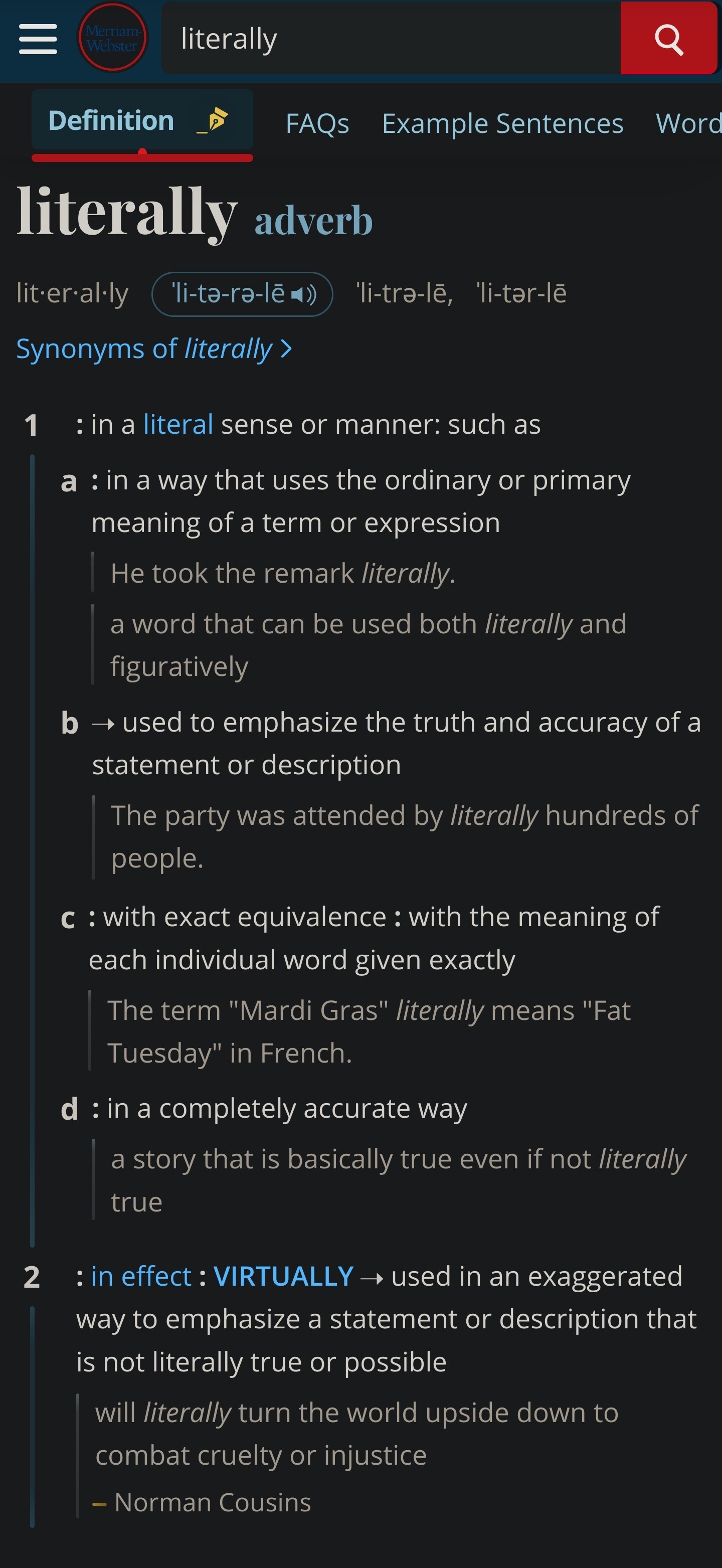Merriam Webster is a descriptive dictionary. They don’t tell you how words “should” be used, they say how words are used.
Using literally as an intensifier goes back literal centuries. The earliest written citation we’ve found of that usage goes back to 1769. It can be found everywhere from Dickens to Brontë.
It’s also hardly the first word to go on a similar path towards becoming an intensifier. Very originally meant “genuine”, really meant “in fact”, absolutely meant “completely”, etc.
But who complains about sentences like “I was really bored to death”, or “I was absolutely rooted to the ground”? Does saying “it’s very cold” just mean “it is a genuine fact that it is cold”?
Literally still means what it means. You can’t use literally to mean “yellow”, for example. People aren’t generally confused when they come across the word.
Also… I’m all for the language evolving and words changing their meaning over time, as they’ve always done, but that one is crazy. Hopefully common use will, in time, fix that and get that new definition changed… but ehh, I don’t hold much hope.
Bring on the AI overlords? Reading the Polity (Sci Fi) series at the moment, and it really doesn’t seem like a bad option!
Words apparently don’t mean things anymore, Merriam Webster added a new definition for “literally” this year
Merriam Webster is a descriptive dictionary. They don’t tell you how words “should” be used, they say how words are used.
Using literally as an intensifier goes back literal centuries. The earliest written citation we’ve found of that usage goes back to 1769. It can be found everywhere from Dickens to Brontë.
It’s also hardly the first word to go on a similar path towards becoming an intensifier. Very originally meant “genuine”, really meant “in fact”, absolutely meant “completely”, etc.
But who complains about sentences like “I was really bored to death”, or “I was absolutely rooted to the ground”? Does saying “it’s very cold” just mean “it is a genuine fact that it is cold”?
Literally still means what it means. You can’t use literally to mean “yellow”, for example. People aren’t generally confused when they come across the word.
I’m just going to assume they meant that sarcastically.
Also… I’m all for the language evolving and words changing their meaning over time, as they’ve always done, but that one is crazy. Hopefully common use will, in time, fix that and get that new definition changed… but ehh, I don’t hold much hope.
Bring on the AI overlords? Reading the Polity (Sci Fi) series at the moment, and it really doesn’t seem like a bad option!
They also added a new definition for “very” to mean something other than, “factually”, or, “verifiably”.